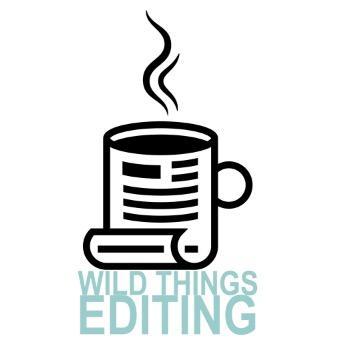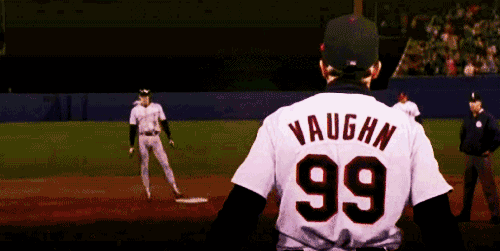How a Wild Thing rescued my main character.Stella was in grave...


How a Wild Thing rescued my main character.
Stella was in grave danger.
Not from alien monsters or backstabbing classmates or unkillable hunters. From me. The author. I was killing her.
It was not only a classic case of sequel-itis, but a double-edged sword of marginalization. You might not know this, but The Trial didn’t start off as the first book in the PULSE series. No, no, no. I actually kicked off with an outline of the second book, Moonlighter.
Moonlighter was alway this grand space-operatic adventure with a crazy ensemble cast, kicking ass and taking names across the galaxy. And Stella was just one member of the crew. Come to think of it, I don’t think she was even the first character I came up with. But the more I got into it, the more I realized that of all the characters, she was the one with the best story to tell. Not only was she the only Human on the crew, making her instantly relatable from a reader standpoint, but she was also one of the most tragic.
And so, what begun as a flashback eventually became The Trial. Rather than catching up with her backstory, you were dumped right at the beginning and followed her every step of the way through the hardships she endured. And it was awesome.
But then came the problem. To construct The Trial, much of Stella’s mystery was sucked out of Moonlighter. And, like a chump, when the time came I simply jumped back into writing the sequel. I fleshed out the other members of the crew and built a much larger conflict, all the while pushing Stella along on rails with virtually no development of her own, other than to act as our vehicle to traverse this new world.
And I was blind to it for the longest time.
But that’s when Wild Things Editing came along. For completely unrelated reasons to this issue, I sought them out. More to help me improve as a writer in general than anything else. I knew I had some issues with voice and POV in The Trial and needed some straightening out before my bad habits really stuck.
I was lucky enough to have Kim Graff, one of the editors, dive deep into my manuscript and give me a full on critique. Not only did she scan every page, paragraph, and sentence with her scrutinous eye, but in her editorial note, she covered everything from grammatical errors, marketing suggestions, world building and character development. She gave me a crash course on passive vs active voice and an idiots guide to filter phrases. All on top of her in-depth chapter-by-chapter analysis to sum up where I was kicking ass and where I was getting my ass kicked.
Most importantly, she showed me the really glaring deficiency in the book. Stella had become boring. After all the crazy shit she went through in The Trial, Kim pointed out that we manage to get pretty far into Moonlighter before it’s even mentioned in any real depth. The transition into Stella becoming some happy-go-lucky space adventure wasn’t believable in the slightest. And no matter how great some of the new additions to the cast were, the main character had fallen flat.
So, after wading through the river of red pen and feedback, then crying myself to sleep for a few nights, I picked myself up and dusted the draft down, ready for round 2.
Needless to say, things have improved. Stella has changed. But not in the ‘Oh she’s such a happy person, but now she’s oh so sad - oh wait now she’s happy again’ way she had before. There’s a conflict brewing within. A guilt. We’ve all suffered through it. Knowing we have to move on from grief, but unable to truly break free. Wanting to be the person we once were but damaged by what we’ve been through. Thrust into a new environment while you’re still trying to figure out who you are, or even who you’re becoming.
Kim helped me realize that just because the main character is the reader’s eyes and ears through a story, doesn’t mean their own inner-turmoil has to take a backseat. And that you don’t have to re-tread old ground just because a character is still suffering. Despair can manifest itself in so many ways.
This wasn’t the only lesson I learned of course. But it was the most important. It hasn’t just helped me write this book. It’s helped me to conceive the entire series in a more structured way. You can’t fill one book with a particular conflict and expect the effects not to ripple through the others. Neither can you drop something into your story because it has a place much further down the line.
I’ve got a ton of great ideas, but now I’m better equipped to make sure they actually come together to form something worthwhile.
So thanks, Kim. It’s been a pleasure. You’re an awesome lady. With a head full of smart knowledge-y stuff and things. And you write funny tweets.
And thanks to Wild Things Editing. Thanks for giving me the tools to, hopefully, succeed. And thanks for taking the time to work with me.
Most importantly, thanks for helping Stella. She’s completely broken now. But in the most interesting to read kind of way.
Shit was wild yo
Laugh In The Face Of Dadversity
- R.A. Crawford's profile
- 40 followers



